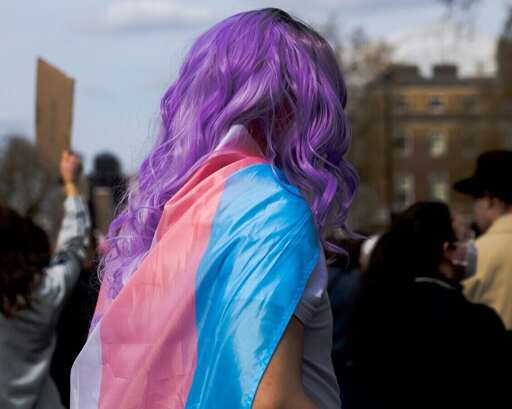The Council of Europe has warned that the government’s treatment of trans people could breach the European Convention on Human Rights (ECHR).
Specifically, the council warned the UK against banning transgender people from bathrooms based on their biological sex
According to the Independent, Michael O’Flaherty, commissioner for human rights for the Council of Europe, said that new guidance after the Supreme Court ruling on trans people must:
Not leave them in an intermediate zone … as not quite one gender or the other.
O’Flaherty penned a letter to Sarah Owen, chair of parliament’s women and equalities committee, and David Alton, chair of the joint committee on human rights. He stated:
Lawmakers in the UK have viewed the human rights of different groups as a zero-sum game.
He also said that this has contributed to narratives which increase prejudice against trans people. Furthermore, it’s:
Portraying upholding their human rights as a de facto threat to the rights of others.
He added that this could lead to trans people being further excluded from public spaces. Additionally it could infringe on their ability to “participate fully and equally in society”.
Supreme court ruling
As the Canary previously reported back in April, the UK Supreme Court ruled that the terms “woman” and “sex” in the Equality Act 2010 refer exclusively to characteristics assigned at birth. This was due to a campaign by anti-trans campaigners.
The judgement is already having significant implications for the rights of trans people across the UK. As we previously reported:
By prioritising a gender normative definition of sex over legal gender recognition, the court’s decision disregards the lived experiences and identities of trans women. It raises questions about their access to single-sex spaces, participation in public life, and protection against discrimination.
The Supreme Court’s decision reflects a troubling trend within politics and justice to favour a narrow, right-wing view of gender, ignoring the complexities of gender identity and trampling over the rights of trans people.
This approach fails to consider the social and legal realities and plays right into the hands of the anti-trans lobby, the far-right, and bigots.
‘Specialist legal advice’
Meanwhile, the equalities watchdog has withdrawn interim advice on how institutions should react to the Supreme Court’s ruling.
The Equality and Human Rights Commission (EHRC) said the advice, published in April, shortly after that month’s supreme court ruling that the legal definition of a woman is based on biological sex only, had been taken down from its website.
In its place, the EHRC says organisations seeking to understand how to implement the ruling should “take specialist legal advice” ahead of the approval by parliament of the watchdog’s statutory guidance, submitted to ministers in early September.
Previously, some MPs joined transgender activists to express alarm at the EHRC’s interim advice. In effect, the advice would exclude trans people from large parts of public life.
A lifetime of waiting
This comes as waiting times for gender-affirming care skyrocket, and NHS failures are forcing trans people to find hormones on the black market.
Across the UK, more than 37,000 people are on waiting lists for gender identity clinics (GICs). The average wait time is nearly five years. Obviously, this is far longer than the wait time for any other NHS treatment.
The ridiculous wait times are driving some young people to suicide.
Only this week, a coroner ruled that a 17-year-old girl who took her own life waiting to be seen by an NHS gender clinic, could have been saved if wait times were shorter.
Andrew Walker, the senior coroner, said that:
Having to battle with changes to her body without receiving the necessary preventative treatment, together with the many hurdles and setbacks, gradually eroded her belief that she would succeed and everything would be alright.
He then urged NHS gender clinics to do more to bring down waiting lists. This will help prevent mental health risks among those waiting for care.
In a statement to PinkNews, a spokesperson TransLuscent, a trans campaign group, said Leia’s death was a:
Direct consequence of a healthcare system designed to delay, obstruct, and ultimately deny necessary medical treatment to vulnerable trans youth.
Image via Karollyne Videira Hubert/Unsplash
By HG
From Canary via this RSS feed


